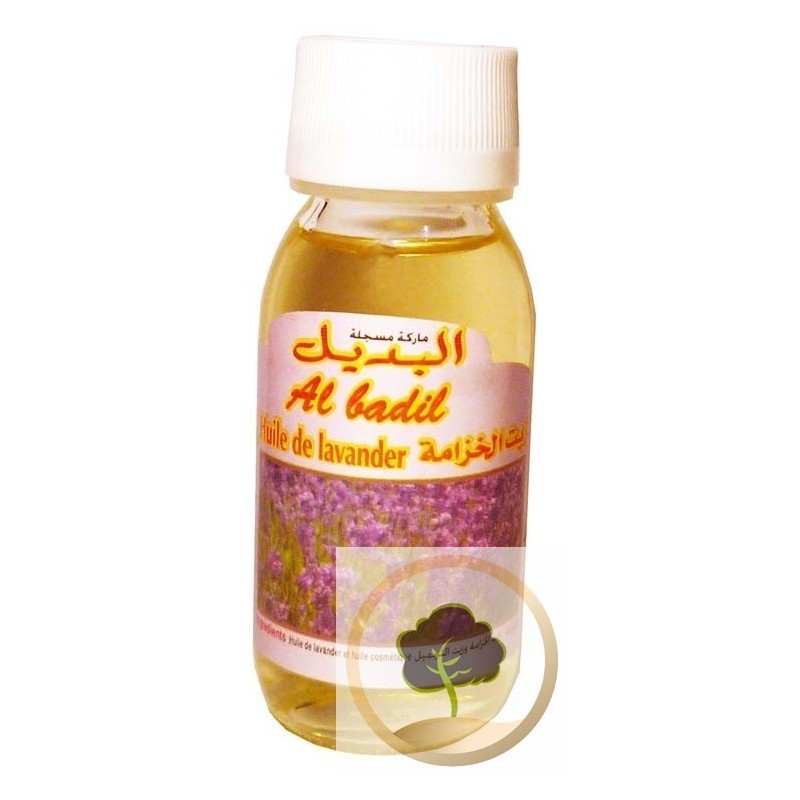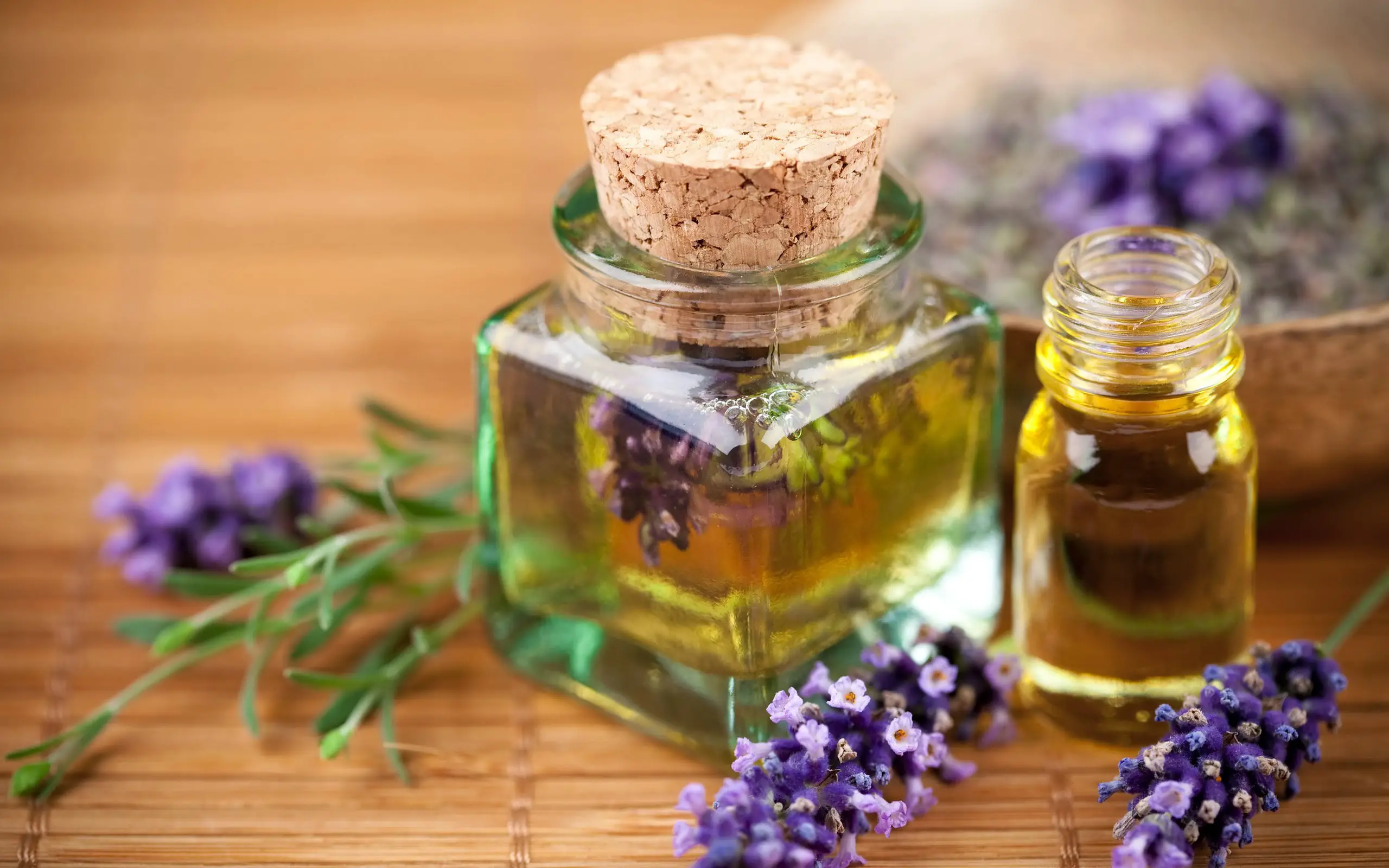Table Of Content

Using lavender oil for hair is one of the best ways to promote hair growth and increase its volume. Treating your scalp with this oil is a great natural solution for hair loss prevention. It has antimicrobial properties, kills lice, improves hair texture, boosts blood circulation, and soothes your scalp. You can use lavender oil as a massage oil or serum, add it to your hair care products, hair masks, or buy products with lavender oil for hair conditioning. So, always do a patch test before applying it for the first time.
Can I leave lavender oil in my hair overnight?

To enhance the oil’s absorption, cover your hair with a shower cap, plastic wrap, or a warm, damp towel. This helps create a heat-trapping effect, allowing the oil to penetrate deeply into the hair and scalp. Health says your hair can grow around one-and-a-half inches every three months and go through four growth stages. Factors such as lifestyle, illnesses, aging, and more can affect the length of each phase.
What Are The Best Ways To Use Lavender Oil For Hair Growth?
The antifungal properties of lavender oil mean that you can get rid of an itchy scalp that has dry flaky skin. In this article, you will learn about the many uses of lavender oil. You will find out what science says as to why lavender essential oil is good for your skin, hair, and mind. Welcome to Hello Glow, where you'll learn all about making clean beauty products with herbal ingredients and essential oils. Read on for our best tips, techniques, and recipes for natural beauty.
Lavender and Jojoba Oil For Hair
"The ancient ingredient has been known to have calming properties that help with sleep, healing, and anxiety," explains Hanna Naranjo a wellness aesthetician at Haven Spa. "Lavender oil can treat everything from bug bites and minor wounds to insomnia, stress, headaches, and is great for skin." says Naranjo. Incorporate these facts into your decision-making process about using lavender oil. If you experience any adverse effects while using this essential oil, don’t hesitate to seek medical advice promptly.
With that in mind, let’s separate the fact from the fiction and delve into the science of what lavender oil can actually do for your hair. You can use lavender oil to achieve lustrous locks if you use it properly and pay attention to any potential allergies. Inhaling large amounts of undiluted lavender oil vapor can lead to respiratory problems, including coughing and difficulty breathing. Leave the oil treatment on for at least 30 minutes, or you can leave it overnight for an intensive treatment.
7 Hot Oil Blends to Tackle Hair Fall - WION
7 Hot Oil Blends to Tackle Hair Fall.
Posted: Sun, 07 Jan 2024 08:00:00 GMT [source]
One of the benefits of lavender oil for hair is that it soothes itchy scalp and reduces dandruff. It is antiseptic and antibacterial meaning that it helps in fighting bacteria and other microorganisms. But remember, if you do deal with a chronically itchy scalp or dandruff then you should speak to your doctor before trying out a home remedy. “Cedarwood oil has been proven to help enhance blood circulation to the scalp and tighten the follicles,” Johnson says.
Lavender Oil has a Calming Effect
According to the CDC, it is no longer necessary to send students home immediately if they have lice, but instead, schools can now wait until the end of the day. Few things can be more annoying in terms of hair management than kicking up a mini snowstorm every time you comb or even touch your hair. While further studies on human subjects are needed, it is nevertheless safe to experiment on your own as long as you do a bit of research first.
Also, cheaper lavender oils from drugstores are often diluted wth synthetic ingredients. It is important to note that some individuals may experience allergic reactions to lavender oil, so it’s crucial to perform a patch test before using it extensively. Additionally, dilution recommendations should be followed to avoid skin irritation, and pregnant or nursing women should consult with a healthcare professional before using lavender oil on their hair. Lavender oil has a soothing scent that can help reduce stress and promote relaxation.
However, there are a few tricks to speed up growth and get your hair to your desired length faster. Ingredients like lavender oil have given hope to those looking to get longer locks faster. Putting a drop of lavender oil directly on an insect bite can help to reduce itching, redness, and swelling.
It is also a multipurpose oil, offering antifungal, antimicrobial, antiseptic, and anti-inflammatory properties [source]. While no studies have evaluated horsetail oil used topically, a 2015 study found that oral tablets containing the oil improved hair growth and strength in women with self-perceived thinning hair. If you want to improve both hair thickness and hair growth, rosemary oil is a great choice thanks to its ability to improve cellular generation. It also has antimicrobial and antibacterial properties, which can improve scalp health.
Applying a couple drops of lavender oil to your scalp can help kills germs and open up your pores, promoting hair growth. It can also help prevent scalp irritations that can cause infections, itchiness, or dandruff. While using lavender for hair growth can be your main motivator, the powerful essential oil can also be used to improve your scalp health and wellness. As a powerful antimicrobial, antibacterial, and antifungal essential oil, lavender can help prevent microbes, bacteria, and fungi from growing and flourishing.

This blog post will explore the science behind lavender oil‘s benefits for hair growth and how you can incorporate it into your routine. ” embodies the spirit of Dr. Bronner’s approach to ethical business practices and stewardship of the earth. Perhaps best known for their pure castile soap, all Dr. Bronner’s products are certified USDA organic and vegan.
Thanks to good plant breeding and some well-organized advice, most of us can now grow beautiful lavender plants in the USA. We'll help you choose lavender plants for all of your gardening, crafting, and culinary hobbies. While hair oiling is generally safe, there are some potential risks to keep in mind. First, “leaving hair oil on for too long can lead to occlusion of the follicles and can contribute to seborrheic dermatitis,” says Dr. Spann. So, if you sleep with it overnight, make sure to wash yours out after 8 to 10 hours with shampoo. There are no specific number of days you should be oiling your hair, says Dr. Spann, but for most people, once a week is sufficient.
Lavender oil that is not classed as “food grade” should not be used internally. To prevent gastrointestinal irritation, keep internal use of food grade lavender oil to a minimum. Or, add 2 drops of lavender oil and 2 drops of rosemary oil to a tablespoon of olive oil. Massage the oil into your scalp daily and leave for 30 minutes before washing out with your lavender shampoo.
It helps in reducing stress and tension which can be a contributing factor in thinning hair. This leads to a vicious cycle seeing that stress causes hair fall and excessive hair fall causes more stress. Reducing stress and using lavender essential oil for hair can solve the root cause of the problem. In the context of hair care, lavender oil's antiseptic and anti-inflammatory properties can be particularly beneficial for maintaining a healthy scalp environment, a precursor to optimal hair growth. Pregnant or nursing women should be cautious when using essential oils such as lavender oil and seek advice from a healthcare professional.













